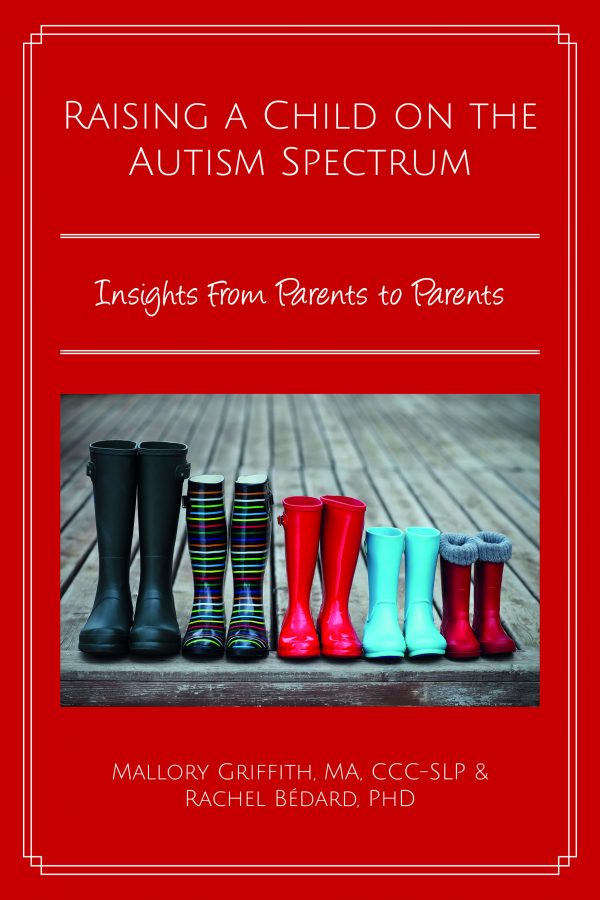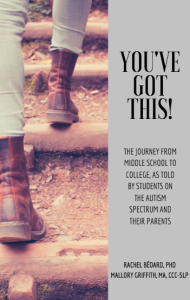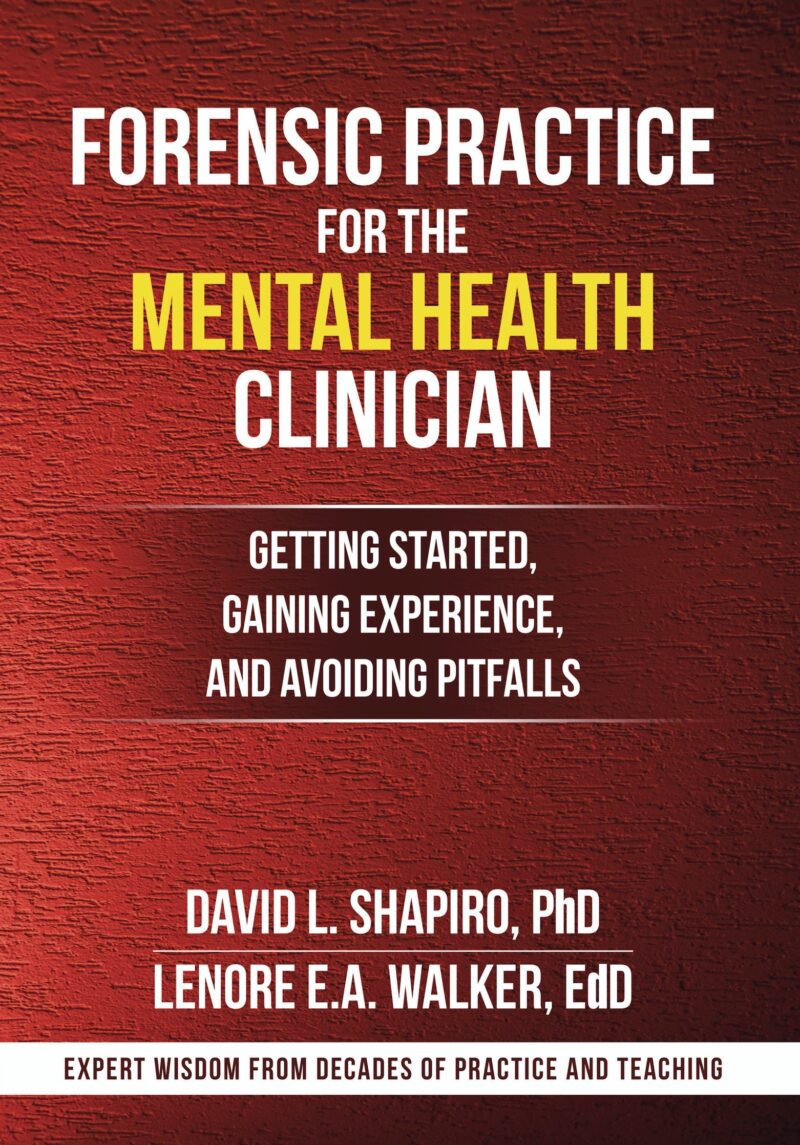Description
Raising A Child On The Autism Spectrum - Insights From Parents To Parents
By Mallory Griffith, MA, CCC-SLP and Rachel Bédard, Ph.D.
Published by TPI Press
Twenty-four parents poignantly share their experiences with raising a child on the autism spectrum. The challenges can be daunting. Nonetheless, the rewards are immeasurable. As one author notes, such children “will teach you about the meaning of life—the beauty of patterns and seeing life through a different lens.”
If you are a parent of a child on the autism spectrum, some of the scenarios will be familiar—multiple doctor visits in seeking a diagnosis, questioning your own parenting skills, navigating the educational system, worrying about your child’s social life, and trying to stay one step ahead of potential meltdowns, not to mention the stress on the family.
But you will also read parents’ accounts of their wonderment and admiration when they catch a glimpse of their child’s gifts and talents. As a parent of a son or daughter on the spectrum, you can appreciate how such moments remind you, again and again, that you are lucky to have this person in your life.
This book is also for you if you don’t have a child on the autism spectrum. You probably know someone living on the spectrum, perhaps a family member, a friend, or a neighbor. If you’re a professional who works with children, chances are that some of them are on the spectrum. The stories described herein will give you a better understanding of how these children relate to the world, each in their own unique way. Start reading to meet these remarkable families!
Read an excerpt of one parent's story (click arrow to expand)[expand]
The Best Days Ever
“Nothing ever goes away until it has taught us what we need to know.” —Pema Chödrön
My father used to say, “The universe delivers its lessons in the most gentle way possible.” He also said if we don’t get a lesson the first time, the universe is happy to hit us over the head.
I’ll admit: I’ve been hit over the head a lot. I was a stubborn kid, an impulsive and headstrong teenager. I like to think I’ve let some of my stubbornness go as an adult, but that probably depends on whom you ask. As far as early “gentle” lessons from the universe regarding my “it’s my way or the highway attitude,” I don’t remember them. I was probably too stubborn to connect the dots.
Perhaps the most enduring lesson arrived in adulthood. My first child was born when I was 33 years old. I’d waited longer than most people I knew to become a mother, mainly because I wanted to “do it right.” I wanted to be ready. I wanted to have traveled. I wanted to have experience with things that I knew would be difficult if I had young children in my 20s. So by the time I was ready to become a mom, I had a lot of expectations about how things would go. I was going to be a perfect mom. And I was going to have a perfect kid. It was going to rock.
I’d read all the baby books. Talked to my friends who were mothers. I’d investigated the various teaching methods at preschools, and knew where I’d send my son when he was ready. I had a plan. And then my son was born. I remember the doctors placing him in my arms and falling in love with him right away.
But what happened over the next few months and years was not in my playbook. My son took a long time to sit up. He took longer to crawl. He seldom made eye contact with me. He didn’t coo, and at 18 months of age, did not say any words. I began to worry—a lot. Regular pediatric visits came and went, and doctors assured me he was fine. But I knew he was not fine. My gut told me something was wrong.
At age 2, he was diagnosed as “at risk” for an autism spectrum disorder. I remember the awful fluorescent lights in the doctor’s office, the shot of panic as she told me the diagnosis. I remember the tears as I repeatedly asked her, “What does this mean?“ and, “Will he be OK?” and the disbelief when she said gently, “It is too soon to know.”
It would be another year before we had the official diagnosis of autism spectrum disorder. I was in a panic for the year leading up to the official diagnosis—coordinating behavior therapy sessions, speech therapy sessions, reading everything I could on autism, and learning behavior modification techniques so that I could support my son’s recovery. I was determined he would recover. I was determined he would speak. Determined that he would be like every other kid. Accepting the diagnosis was the furthest thing from my mind. I was not going to accept autism; I was going to beat it.
And in a way, we did beat it—we won. My son is now 9 years old and in a typical classroom with his typical peers; a layperson would never suspect that there ever was a diagnosis. And so I justified my stubbornness and my obsessive-compulsive management of therapy sessions and my own high expectations because we “beat” this thing called autism. What I was missing, though, while I was running therapy sessions and behavior support services like a mafia boss, was happiness. I was so focused on the outcome that every day was a stress-packed, exhausting, miserable mission. Not that I was aware of this at the time—I was doing the best I could. I was fighting for my son. I was acting out of a love that, more than anything, wanted to ensure that he would be OK. But the days? The days were long. The days were worry-filled. The days took a toll on my marriage and a toll on my health. I became depressed, my temper short...
[part of story omitted here]
…One day my husband looked at me as I was rushing off with my son to a behavior therapy appointment and said to me, “What is the goal of all of this? Is it for him to be normal? Because normal is overrated. And if you want to know something, I don’t want him to be normal. I want him to be the best version of himself he can be.”
It took me a while to process what my husband said to me. But something happened when I did: I thought to myself, “What if? What if I stopped wishing my son was like every other kid on the block? What if I just let my expectations go? What if, instead of worrying about whether he’d be OK, I started enjoying his quirky, smart, beautiful manner? What if I stopped worrying about what other people thought? What would happen?” I decided to try.
Shortly thereafter, my husband and I went to the new doctor to receive my younger son’s diagnosis. Before the appointment, I forgave myself for not accepting my first child’s diagnosis. I forgave myself for thinking my mission was to “fix” him and that while I was so grateful for where we were, I openly accepted anything that was to come. I repeated this to myself, to my spouse, to the universe. I had faith that the universe had heard me.
And our days began to change. My kids smiled more. I smiled more. I found myself laughing for the first time in years. I decided to embrace the days, no matter what. The diagnosis would not define our days. Love would define our days. Compassion would define our days. Hope would define our days.
During that appointment, my second child was diagnosed with autism. I still believe the universe heard me. And in quiet moments, I can hear its gentle, loving, reply: These are your best days, my dear, and you are so, so, very blessed. [/expand]
Table of contents (click arrow to expand)[expand]
Acknowledgments
Introduction
Step I: The Beginning of Your Journey
Chapter 1. “Hi. Intuition and I would like to schedule an appointment.”: Securing a diagnosis
- Someday She Is Going to Rule the World
- My Journey With Autism: In the Beginning
- Let’s Get to Work
Chapter 2. “Got a minute? I have something to share with you.”: Sharing the diagnosis
- Am I the Only One?
- The Talk
- It Takes a Village
Step II: The Middle of Your Journey
Chapter 3. The Best Days
- The Best Days Ever
- Reality Calling
- Our Best Day
Chapter 4. Wine Won’t Solve This: The Harder Days
- The Lesser of Two Evils
- The Sky Is the Limit
- Splashes of Color
Chapter 5. “Picking the locks to open the doors of the world for exceptional children”: The Poignant Moments of Raising a Child With ASD
- Locksmith Needed!
- Looking Back and Remembering Moments With Gordon
- Better Than Anyone …
Chapter 6. The ASD Handbook Didn’t Include This! What Parents Wish They Had Been Told
- Loneliness and Surprising Friendships
- Sometimes Life Gets Harder Before It Gets Better
- What I Wish Someone Had Told Me Early On
Chapter 7. “I got this!”: The Impact of ASD on the Family
- Everything Changed
- Lessons From Living in ASland
- Life Is What Happens When You’re Busy Making Plans
Step III: Your Future Journey
Chapter 8. The Question of the Century: Where Is Your Child Headed in Life, and How Will He or She Get There?
- What Will Miss T Do?
- Helping Him Find His Own Path
- What Will He Do With His Life?
Closing Thoughts
Glossary
Appendix [/expand]
About the authors
 Mallory Griffith, MA, CCC-SLP, is a speech-language therapist who focuses on coaching social communication skills in her private practice. She is the founder of the nonprofit, SOCIAL! The Pendley Project, which supports people with social and sensory-based needs through meaningful, daily activities. Mallory is profoundly grateful for clients who provide inspiration and colleagues who kindly support her endeavors. She is particularly thankful for Dr. Bédard’s patient mentorship and friendship. Mallory resides and works in Fort Collins, Colorado. Mallory Griffith, MA, CCC-SLP, is a speech-language therapist who focuses on coaching social communication skills in her private practice. She is the founder of the nonprofit, SOCIAL! The Pendley Project, which supports people with social and sensory-based needs through meaningful, daily activities. Mallory is profoundly grateful for clients who provide inspiration and colleagues who kindly support her endeavors. She is particularly thankful for Dr. Bédard’s patient mentorship and friendship. Mallory resides and works in Fort Collins, Colorado. |
 Rachel Bédard, PhD, is a licensed psychologist living and working in Fort Collins, Colorado. Known for her quick wit and dry humor, Dr. Bédard can seemingly find strengths in any situation and guide her fantastic clients to their own version of success. She thanks the many individuals who have allowed her to learn from their life experiences. This book would not have been possible without the inspiration of clients and mentors. Rachel Bédard, PhD, is a licensed psychologist living and working in Fort Collins, Colorado. Known for her quick wit and dry humor, Dr. Bédard can seemingly find strengths in any situation and guide her fantastic clients to their own version of success. She thanks the many individuals who have allowed her to learn from their life experiences. This book would not have been possible without the inspiration of clients and mentors. |
Are you considering this book for a class you are teaching?
Request a review copy. Download the request form and email it as an attachment to jeffzimmermanphdATthepracticeinstitute.com.




